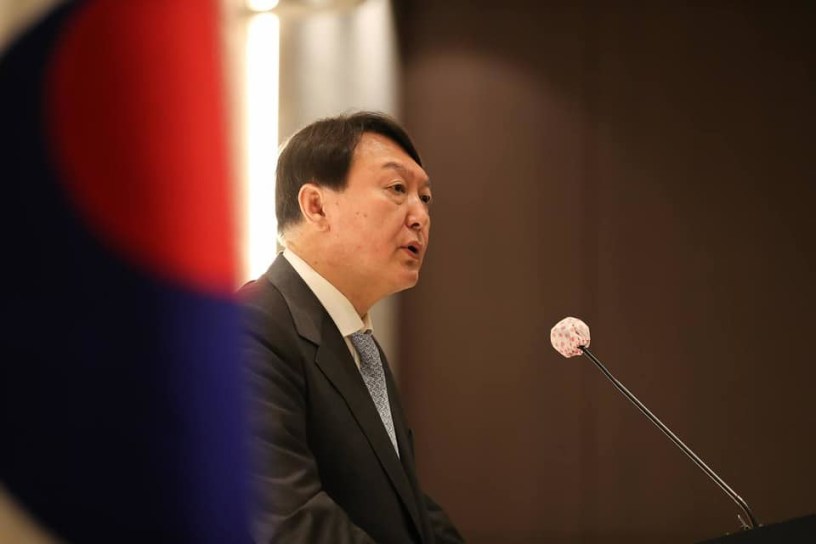Early Thursday morning in South Korea, the results of the country’s presidential election were announced: Former Prosecutor General Yoon Suk-yeol (윤석열) will be the next President of the Republic of Korea. His victory has the potential to reshape Sino-Korean relations over the next five years.
Yoon, the presidential nominee of the conservative People Power Party (PPP), edged out his Democratic Party opponent Lee Jae-myung (이재명), securing 48.6% of the vote to Lee’s 47.8%. The narrow margin of victory marked the end of a contentious campaign full of controversies and starkly different policy proposals.
During the campaign, Yoon promised a tougher “reset” on relations with China, in favor of stronger ties with the United States in its place.
China is Korea’s closest trading partner by far, accounting for 24.5% of Korea’s exports and 22.2% of Korea’s imports as of 2019. The United States holds a distant second place, accounting for 13.5% of Korea’s exports and 11.9% of its imports. On the issue of defense, however, South Korea and the United States have been signatories to a Mutual Defense Treaty since 1953, guaranteeing a close security relationship between the two democratic nations.
Due to the close economic integration with China and security integration with the U.S., incumbent Korean President Moon Jae-in (문재인) has often opted for a position of “strategic ambiguity.” In early 2021, Moon went so far as to describe US-Korean and Sino-Korean relations as “equally important for us.” Lee, a member of the same party as President Moon, similarly took a softer stance toward China compared to his PPP opponent.
Yoon seized on these perceived weaknesses of the Democratic Party’s foreign policy and accused the incumbent administration of having “succumbed to Chinese retaliation at the expense of its own security interest.” After the government of Korea announced its plans to install U.S. Terminal High Altitude Area Defense (THAAD) antimissile systems in 2016 to defend against North Korean provocations, China engaged in heavy economic coercion against Korea due to its own security concerns about a better-equipped peninsula, resulting in $7.5 billion USD in losses for Korea by 2021. The THAAD installation plans were subsequently scrapped by the Moon administration, and the president also committed to not join any missile defense network with the U.S. and to not engage in any trilateral defense alliance with the U.S. and Japan. Although Koreans had a net favorable view of China as recently as the previous decade, today 75% of Koreans hold negative views of China.
In his campaign, Yoon turned Moon’s commitments on their head, promising in his campaign to deploy new THAAD systems as well as seek membership in the Quad, a strategic security dialogue which currently exists between the United States, Japan, India, and Australia and which has already drawn the ire of China. As an overarching goal, Yoon has expressed his desire for Korea to “actively promote a free, open and inclusive order in the Indo-Pacific.”
Just weeks after Yoon announced his campaign in summer 2021, Chinese government officials had already criticized his proposals. Chinese Ambassador to Korea Xing Haiming wrote in an op-ed that “The American action of placing THAAD in Korea has seriously undermined the security interests of China,” and insisted that “Korea-U.S. relations should not hurt the interests of China.” Chinese Foreign Ministry Spokesperson Zhao Lijian doubled down on the remarks, arguing that China finds several of Yoon’s proposals “unacceptable.”
President-elect Yoon will formally take office on May 10th, 2022 and will serve for a term of five years. As Yoon begins his presidency and tests the waters with strengthening Korean-U.S. relations, he will continue to face harsh criticism from the Chinese government and it is likely that China will attempt to take coercive action against Korea again if his security proposals are enacted. Regardless, after yesterday’s election, the democratic network in the Indo-Pacific has gained another China hawk.
Photo credit: Prachatai on Flickr

